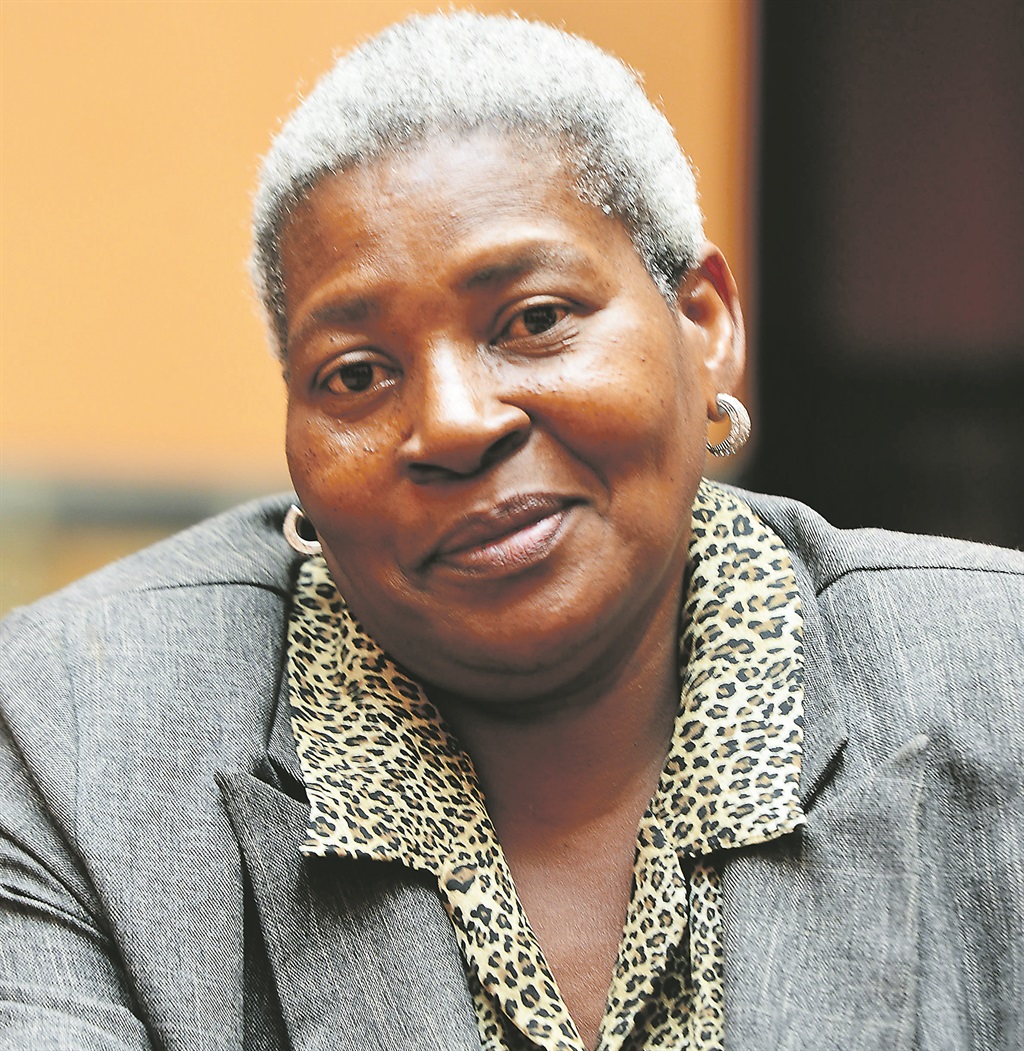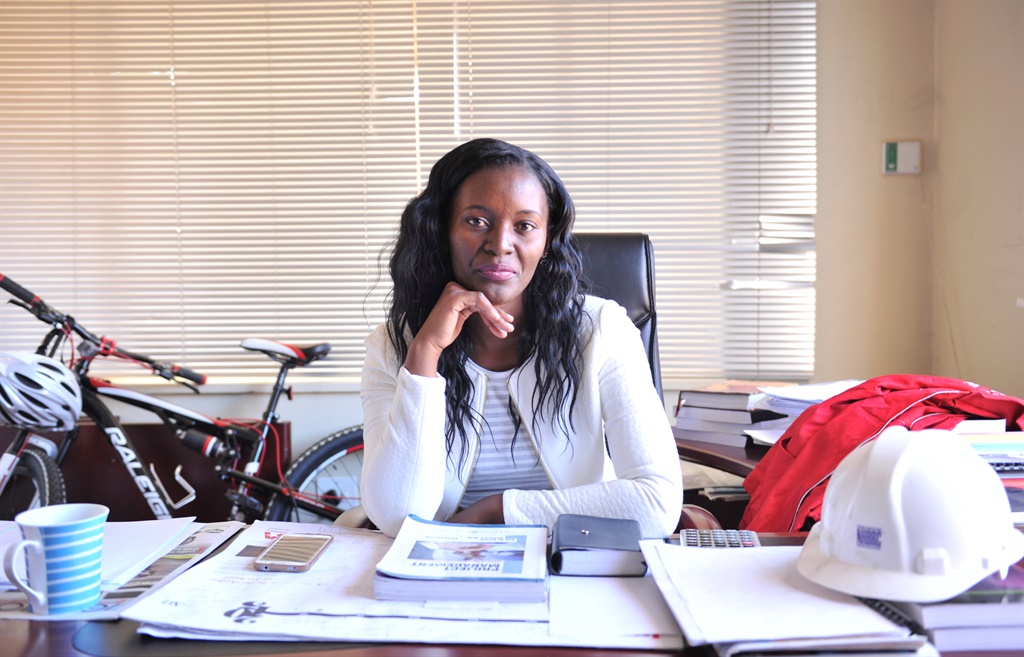
The National Home Builders' Registration Council is once again investing in emerging female entrepreneurs in the construction industry. It is enabling them to attend a business development programme at the Gordon Institute of Business Science in Johannesburg.
City Press is profiling women who had completed the course as well as others attending one. Learning on the job is often the only way that women in construction can move upwards, but many who completed the NHBRC's Women Empowerment Programme learnt valuable lessons there and have made strides in reorganising their businesses, they told Sue Grant-Marshall
Thuli Malakoana of Morena’s Projects, Pinetown, Durban
I was fortunate that my grandfather made me paint our house when I was a little girl. He didn’t differentiate between genders.
I registered my company in 2002 and began building ablution facilities and some classrooms at KwaNongoma, KwaZulu-Natal.
Now Umgeni Water in Durban is giving me projects ranging from paving to water pipes. There are 10 people working permanently in my company at present.
Lessons learnt: Patience is the key to success in construction, especially when it comes to payment issues. Umgeni Water pays us after 14 days, which is great. But some government departments keep us waiting.
I completed a job for government nine
months ago, for which I am still waiting to be paid – but I can’t mention names as I need the work. It’s bad for business as it makes me disorganised.
So, I’ve learnt to diversify to supplement my income. I supply bricks and cement to other builders, and I’ve bought small flats to rent out to ensure a constant income.
Xoli Khuzwayo of Khuno Trading, Nelspruit, Mpumalanga
I started my construction business in 2008, urged on by friends who were in the industry. One gave me subcontracts in RDP housing.
I saved money I’d made in catering and worked on a two-year maintenance of a drip-water system on a sugar cane farm near Malelane. I saved every cent I could and didn’t buy fancy cars like some others did.
Lessons learnt: Don’t compete with others; compete with yourself. That’s my motto. I’m grateful I went to Gibs last year because I was on CIDB Grade 1 then and now I’m on Grade 4. I have 20 RDP houses I’m working on and 22 labourers working for me.
Julia Petla of Amedzo Trading and Projects, Midrand
I registered my company in 2009 when I returned home from the UK. It was a really difficult time owing to the recessionary economic climate.
In 2010, I began doing maintenance work and revamping offices throughout South Africa. I now have my headquarters in Rivonia Boulevard, Sandton, and our turnover is about R3 million a year.
I diversified into petroleum products and also began sourcing strategic supplies such as electrical goods and various other commodities.
Lessons learnt: I have a master’s in business leadership from the Unisa School of Business Leadership and I found the highly qualified Gibs lecturers particularly good when it came to learning negotiation skills.
Magauta Moabelo of Baetla Construction and Trading Enterprise, Polokwane, Limpopo
In 2005, I was unemployed, with children, and my builder father gave me five of his RDP houses to construct. Eventually, he gave me 30 and I learnt on the job from his superviser.
It was tough. Once when I had no money to pay my workers, my father refused to give me a loan, saying that I needed to explain to them that once the department paid me, I could pay them.
In 2007, I got my first contract and he was so proud of me! But after that, I had no work for four years.
Lessons learnt: At Gibs I was taught to diversify, so I bought a tipper truck for working on mines and also a 10-ton truck so I could deliver various materials. I also bought a compactor and a water pump that I hire out.
If I realise now that I might make a loss on a contract, I’ve learnt to go to the client, explain the situation and suggest that we make a plan.
Ndidzulafhi Maggie Netshilindi of Ndidzulafhi Projects, Midrand, Gauteng
I run an electrical and civil construction company that I started in 2001. It’s 100% female owned. I’d seen my husband’s company and thought I could do even better than he was.
I was invited by the Ivory Park municipality to write a construction test and I was one of only 10 people chosen from the 2 000 men and women who applied. Later on, the Midrand municipality trained us further in electrics, laying cables and then planting the streetlights.
Lessons learnt: Gibs taught me how to draft a business plan, which means I can show the bank and myself what I need. That has made me feel a great deal more confident.
However, after we completed the NHBRC course last year, the practical training they said they would provide did not materialise. Now they’ve assured us that we’ll be shown how to build a quality house.
Sindile Hlongwane of Thirhani Nkateko Projects and Developments, Southdale, Joburg
I needed R100 000 to do my first project with City Power in Joburg. My brothers and sisters helped so I could buy material and pay labourers.
In fact, everything I know about construction, I learnt from my brother and sister-in-law as I worked in their company for four years until 2012, when I started my own business. I was doing anything I could, such as cleaning 13 fire stations. I then quoted for six jobs at Joburg Water and got all of them!
I refurbished all their depots, after which the department of education gave me a three-year contract for maintenance and plumbing in Joburg schools. Now I have a contract with the US embassy to renovate a housing complex in Pretoria.
Lessons learnt: At Gibs, I learnt the importance of delegation and trusting others. There are reliable people out there and I’ve learnt I can’t do everything on my own.
Quahnita Samie of Vidememoria Heritage Consultants works nationally and is based in Cape Town
I started my company in 2006 when I was employed as a town planner at the SA Heritage Resources Agency (Sahra). I realised there was a gap in the built environment field for heritage practitioners.
We were the consultants for the Cape Town stadium in Green Point – an area known for its archaeological sensitivities, as there are many undocumented graveyards there. Heritage impact assessments are required by law to determine the impact of proposed development on structures of cultural significance, archaeology, palaeontology, burial grounds, graves and public monuments.
Lessons learnt: Our business model has changed completely since I did the Gibs course. We’ve scaled down the staff component and have a smaller office. Our staff also has the option to earn a percentage of profits instead of a salary. Consequently, we’re able to choose projects about which we’re really passionate.
You may refer a complaint to the NHBRC if any of the following conditions apply:
- The homebuilder does not respond within the periods specified below
- The homebuilder fails to honour its obligations
- There is an unresolved dispute between you and the homebuilder regarding the extent of the homebuilder’s liability
Homebuilder response times:
The homebuilder must respond within specific periods from the time it receives the complaint, as specified below:
- Three-month noncompliance – 21 working days
- One-year roof leak – seven working days
- Five-year major structural defect period – seven working days
- Deposit theft or irregularity – refer complaint to Commercial Crime Unit
- Contractual disputes – refer to your legal representative or attorney




 Publications
Publications
 Partners
Partners















